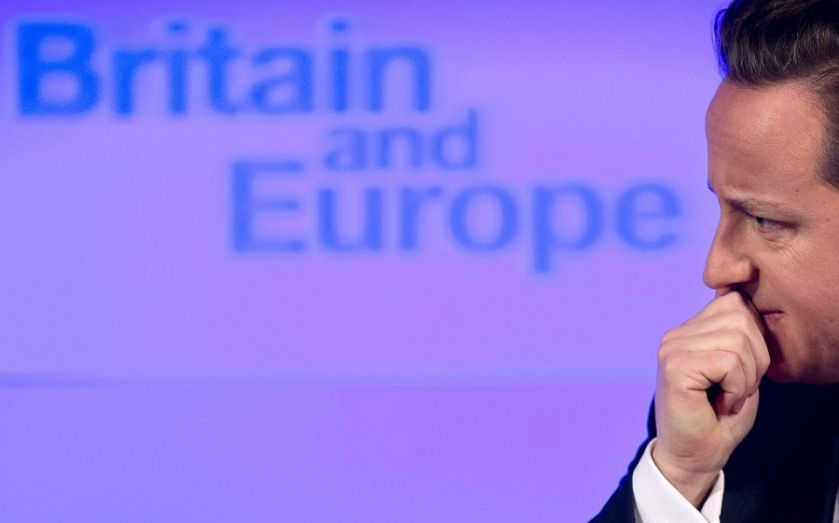Brexit could cost UK 2.2 per cent of GDP without radical free market reform and liberal immigration policy

Britain's economy could take a hit of up to 2.2 per cent of GDP – or £56bn – by 2030 if it leaves the EU, according to a new report from think tank Open Europe.
The report argues that in the worst case scenario, the negative effects of Brexit would not wholly be offset by a new free trade agreement with the EU.
However, the UK could maintain its buoyant economy outside the EU, but it would require embracing one aspect of policy that has sparked a surge in Euroscepticism – open immigration.
“In order to be competitive outside the EU, Britain would need to keep a liberal policy for labour migration," the report argues. If Britain combined a liberal immigration policy with significant deregulation and a bilateral free trade agreement, the UK would actually prosper outside of the EU.
Open Europe estimated this strategy could cause UK GDP to rise by 1.6 per cent. But retaining a relaxed immigration policy post-Brexit is highly unlikely as both Ukip and many Conservatives have argued one of the main benefits of leaving the EU would be the abandonment of open borders.
Maintaining high levels of immigration isn't the only aspect of a post-Brexit Britain Open Europe is worried about. Rodney Leach, chairman of Open Europe and a Conservative peer, doubts the UK would even adopt a radically more free market economy outside the EU.
"Transforming Britain into the deregulated, free trading economy it would need to become outside the EU sounds easy in theory, but in practice would come up against some serious political resistance within the UK itself," Leach said.
The report forecasts the most likely outcome would be neither the best or worst case scenario. The pro-EU think tank believes Britain will suffer a permanent loss of 0.8 per cent of GDP, even after negotiating a free trade deal with the EU.
Open Europe has warned of the dangers of Brexit in the past while still arguing for significant reform. In particular, it sees financial services at risk from severing ties with the EU. An independent UK would fall foul of the EU policy that offers companies in non-member states only limited cross-border access to EU markets, with strict conditions to boot.
David Cameron has promised a renegotiation of Britain's terms of membership followed by an in-out referendum. Labour leader Ed Miliband by contrast has stated his commitment to EU membership and ruled out any possibility of a referendum should Labour win in May.